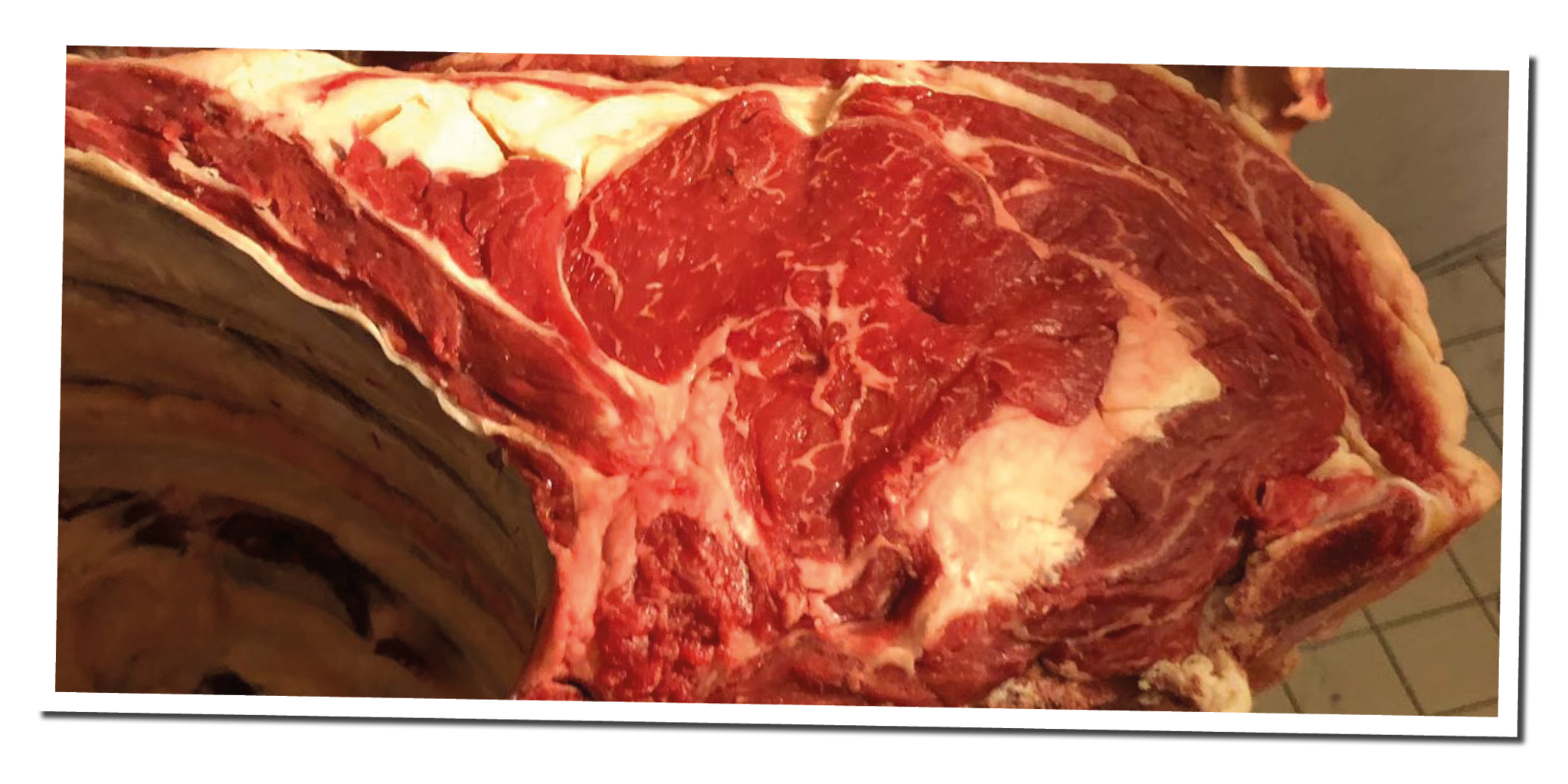
Junk-free, healthy, honest, grass-fed top-quality natural meat. That is what De Woeste Grond stands for. But what does that mean? First of all, our meat is processed in our own butcher's shop and contains NO antibiotics, water, sugar, gluten, fillers, yeast extract, E numbers or other rubbish. Just because it is not necessary.
You are what you eat! That goes for people, but certainly also for animals. That's why we think it's important that we know what our animals eat. This determines the quality of the meat. In the bio-industry, the animals get grain, corn and soya. Cattle and sheep do not naturally eat these, but they grow faster as a result and are therefore faster at slaughter weight. Fattening, fattening ... terms that our farmers are not concerned with. The animals are given time to grow at their natural rate. Nor is it necessary to give the animals antibiotics, to worm them out or to vaccinate them (except for the sheep: they have to be vaccinated against q-fever). The breeds are resistant to the outdoors and therefore do not become (quickly) ill.
The animals that walk freely in the wild are grass fed, or rather naturally fed. They eat herbs, grasses, branches, leaves, etc.. They also live in nature reserves where there is a lot of food to be found, so they keep themselves healthy. Living in the natural habitat makes the meat tasty. Grass-feeding meat is proven to be better and healthier meat. It contains less Omega 6 and more Omega 3 and more healthy fats.
Moreover, our chain is sustainable and small and the meat has a clear guarantee of origin. And to top it all off, by buying this natural meat you support the preservation of the Dutch nature parks.
After a quality life in small flocks, the animals are taken by the nature farmers themselves to the affiliated and certified slaughterhouse. This is done in peace and with great respect. This from the point of view of animal welfare, but also from the point of view of taste. Because stressed animals taste much less good.
We do not produce factory products in our own butcher's shop, but have passion for the meat and work with respect for the animal. We use almost everything of the animals for human consumption: 90%, normally this is 70%. We also sell organs and bones (broth). But forgotten pieces of meat are also part of our business.
After slaughter, the large slaughter animals are divided into manageable parts. As soon as the meat arrives, our butcher Léon and packer Johan are eager to start, but first... good hygiene! The dress code: a work coat, hair net and gloves. The butcher also makes sure it is always clean in the butcher's shop and production area.
A boning knife, a cutting knife, a meat knife, a chef's knife and a chopping knife. Our Léon has many different knives for processing and cutting meat. In most cases, the meat is boned: the bones are cut out. This is a careful job, because the meat must not be damaged. But the butcher is also careful, because the knives are razor-sharp. For this reason, Léon wears a stainless steel safety deposit and ditto gloves.
After boning, Léon determines what the meat is used for. And the membranes, tendons and excess fat are removed. There are dozens of different pieces in the slaughter animals, all of which have to be given their own final destination. A laborious and precise job, that is! Nice fact: the Dutch butcher has the most refined cut (way of cutting the meat) in the world.
When the pieces are ready, Sharon packs them in the vacuum. This keeps the shelf life and colour better. After vacuuming, the meat is immediately frozen to -20 degrees Celsius. This improves the quality. We use vacuum bags and plastic jars without plasticisers, bisphenol A (BPA), pvc and pvdc for packaging the meat.
Our grass-fed meat fits in perfectly with healthy lifestyles, such as ketogenic diet, carnivorous diet, Paleo (primeval diet) and Weston Price. Marinka Bil van EetPaleo is a loyal customer and many food bloggers such as Juglen Zwaan, Nienke Gottenbos (the greenwoman/poop doctor), Rineke Dijkinga (pure Rineke), Simone van den Berg (Simones kitchen/Paleomagazine) and Sjanett de Geus (transformation academy Podcast) mention us in their articles.